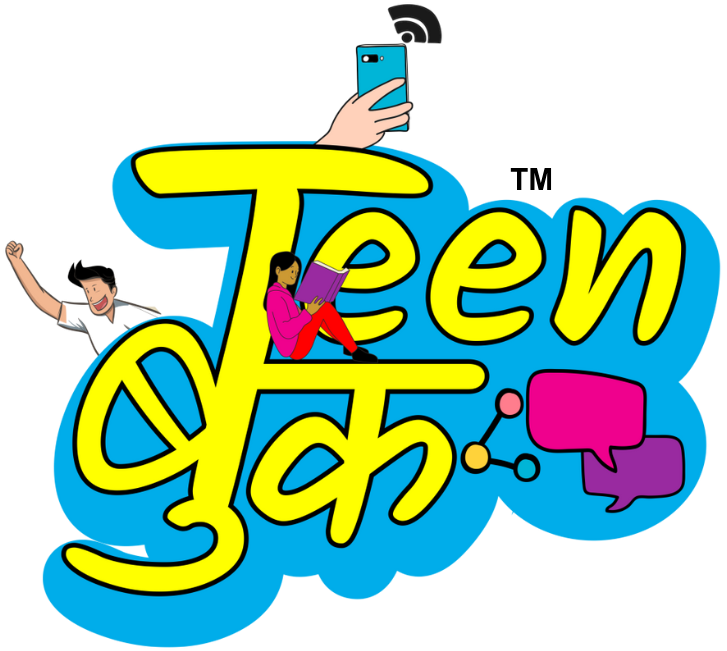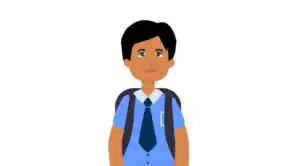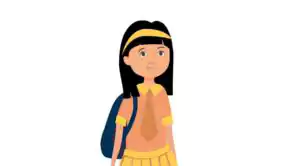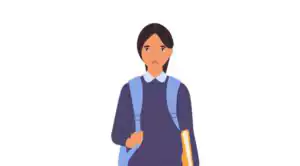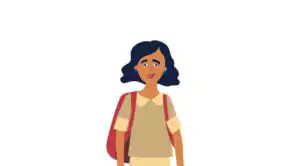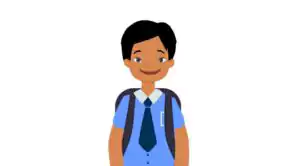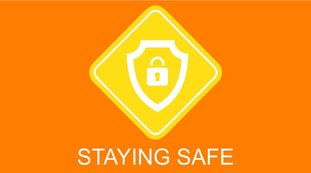Staying safe: Keep this in mind
Aarav, Sara and their friends are excited about getting independence to do their day-to-day activities on their own! But there are a few things they ought to keep in mind to truly enjoy this phase. Let’s know what they are.
It’s tough out there
-
 I was walking back home yesterday from my tuition class. Just then a person tried to sell me some kind of cigarettes. I ran back home and reached home panting. I am not sure but I think my friends were also talking about him at school.
I was walking back home yesterday from my tuition class. Just then a person tried to sell me some kind of cigarettes. I ran back home and reached home panting. I am not sure but I think my friends were also talking about him at school. -
 I too had a scary experience yesterday. A person kept following me home on my way back from Nisha’s place. I came home and told Ammi about it. But I still feel nervous.
I too had a scary experience yesterday. A person kept following me home on my way back from Nisha’s place. I came home and told Ammi about it. But I still feel nervous.
Keeping Safe
- When we are younger, our parents or caretakers protect us from everything.
- As we grow, we gradually start becoming independent.
- That is when we need lesser support from our parents or other adults in doing our day-to-day activities, like going to the tuition class or visiting a friend.
- As we start doing things more independently, we need to also learn to protect ourselves.
- Just like we have fences, doors and walls to protect our house or surroundings, we also need to protect ourselves
Takes all my energy
-
 Hmm….I don’t quite like going to the basketball class these days. It’s just not fun anymore because of Rohan from Section B. He deliberately tries to come close when I am dribbling and the other day he tried to hold my hand. It’s like I have to now spend the entire class avoiding him.
Hmm….I don’t quite like going to the basketball class these days. It’s just not fun anymore because of Rohan from Section B. He deliberately tries to come close when I am dribbling and the other day he tried to hold my hand. It’s like I have to now spend the entire class avoiding him.
This Is Harassment
- Sometimes you might face a situation when someone tries to make you feel uncomfortable.
- Any behaviour that makes you feel bad or uncomfortable, for example, abusive words, unwanted touching of body parts, hitting or forcing you to do something you do not want to do is called harassment.
- It’s important to know when you are being harassed and talk to people you trust.
- If you or someone you know face harassment, you may consider doing the following –
- Say ‘no’ to the person in a firm voice.
- Complain to school authorities if it happens at school.
- Talk to your parents, your school counsellor or a trusted adult.
- Don’t feel embarrassed or ashamed. It’s not your fault.
It’s virtual
-
 I have a new friend. His name is – JAZ13. Okay, I know that’s not his real name. But we met online and I really enjoyed talking to him. We now often play our favourite fighter game together and spend hours chatting. Yesterday he shared pictures of his pet cats. They were so adorable! He then asked me for my picture. I’ll send him one with our pet dog Buzo!
I have a new friend. His name is – JAZ13. Okay, I know that’s not his real name. But we met online and I really enjoyed talking to him. We now often play our favourite fighter game together and spend hours chatting. Yesterday he shared pictures of his pet cats. They were so adorable! He then asked me for my picture. I’ll send him one with our pet dog Buzo!
Online Safety
- The internet is a great place – to learn and to connect with your friends.
- However, there might be some unwanted and dangerous situations on the internet.
- Online harassment can be experienced from anyone you know and also from strangers.
- Some examples of unwanted situations on the internet are someone posting rude comments on your picture, making a fake profile, posting embarrassing pictures or videos or lying about themselves to take advantage of you.
- The term for this behaviour is ‘cyberbullying’.
- Anyone can engage in cyberbullying. It could be a stranger or someone you know.
- Some ways to protect yourself from cyberbullying are –
- Don’t share personal information like your phone number, address or passwords online.
- Avoid talking to strangers online.
- Avoid sharing your pictures if you do not know a person well.
- Talk to your parents, teachers or a trusted adult if you face cyber bullying or harassment.
Come on, just one!
-

I told my friends about the man who tried to sell me cigarettes outside school. Asheesh said, ‘Did you try it? It’s quite cool you know. In fact, try it, I have one now!’
I wasn’t sure what to do. What if my parents found out! Some of my other friends were quite excited to try though. ‘It’s just this one time!’, they said.
Say No To Drugs
- There might be times when you feel under pressure to do something you don’t want to do.
- Substance abuse refers to the harmful use of psychoactive substances, including alcohol and drugs.
- There are some legally available substances such as cigarettes and alcohol while some are illegal, such as drugs.
- While substances can give you a temporary feeling of happiness, they can impact our bodies in harmful ways, such as headaches, nausea, irritation, drowsiness, damage to lungs.
- It’s also illegal to some cigarettes under the age of 18 and alcohol under the age of 21. Although this age differs from state to state. It is completely illegal to possess any kind of drugs.
- It’s important to make the right choices to have a healthy and happy life!
- The best way to make a choice is to equip the self with information about the advantages and disadvantages of substance abuse.
Viruses and more!
-
 Yesterday, I saw some posts about World AIDS Day on Facebook and Instagram. I understood that AIDS is caused by a virus called HIV. But I wasn’t sure how it occurs or how it spreads. it did sound a bit worrying though especially as there is no cure.
Yesterday, I saw some posts about World AIDS Day on Facebook and Instagram. I understood that AIDS is caused by a virus called HIV. But I wasn’t sure how it occurs or how it spreads. it did sound a bit worrying though especially as there is no cure.
Awareness Is Prevention
- There are some infections and diseases that can spread through sexual contact, called sexually transmitted diseases (STD) and sexually transmitted infections (STI).
- They are caused by many different bacteria and viruses and even tiny insects.
- One can get it by having sexual contact with someone who already has an infection or is carrying a virus or a bacteria.
- Some STIs/STDs can also be caused by non-sexual contacts like sharing needles, towels or a bath.
- Fortunately, STDs/STIs can be prevented through:
- Following hygienic practices, for example, avoid sharing undergarments or towels.
- Use of condoms during sexual intercourse to reduce the risk of unintended pregnancy and STDs/STIs.
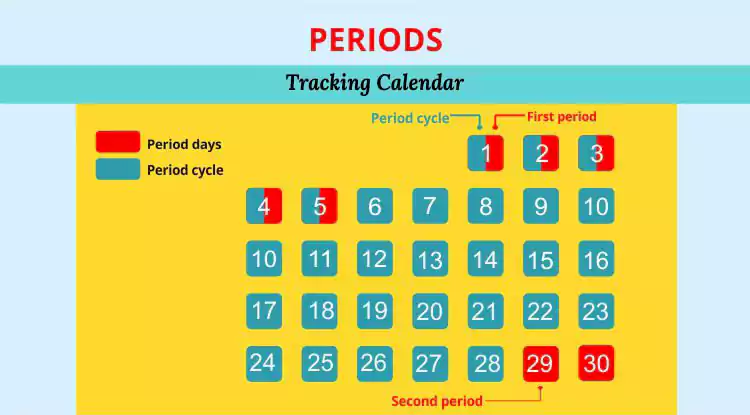
I can’t stand it any more
-
 I moved from Darjeeling just very recently. It’s so hot out here. But honestly that’s not the worst thing. I hate my new school. They have never seemed to have met anyone outside of this city. Everyday I get teased at school – sometimes they call me names at the playground, push me around at the canteen or hassle me on the bus. It’s just getting too much.
I moved from Darjeeling just very recently. It’s so hot out here. But honestly that’s not the worst thing. I hate my new school. They have never seemed to have met anyone outside of this city. Everyday I get teased at school – sometimes they call me names at the playground, push me around at the canteen or hassle me on the bus. It’s just getting too much.
Say No To Bullying
- Bullying is unwanted and aggressive behaviour toward someone. It is a repeated behavior or has the potential to be repeated over time.
- It may include actions such as making threats, spreading rumors, teasing, attacking someone physically or verbally and excluding someone from a group on purpose.
- It can happen in both, real-life and online.
- Bullying can be harmful and confusing for everyone. If you or someone you know is bullied, you may consider doing the following:
- Ask the bully to stop in a calm and clear voice.
- Walk away and stay away.
- Find an adult to stop the bullying on the spot.
- Talk to your parents, teachers or a trusted adult.
Now I know
-
 I was initially quite excited about going to tution classes on my own. But then this cigarette incident happened. I was so anxious for a few days. But talking to Bhaiya helped. He said it happened to him too. And that I had to just tell that guy to stay away. It worked! I am glad I can talk to Bhaiya about these things.
I was initially quite excited about going to tution classes on my own. But then this cigarette incident happened. I was so anxious for a few days. But talking to Bhaiya helped. He said it happened to him too. And that I had to just tell that guy to stay away. It worked! I am glad I can talk to Bhaiya about these things. -
 It was amazing how Vikrant Sir got those boys to calm down yesterday. I am so glad I decided to speak to our school counsellor. He also helped me join a few hobby clubs and I have now found friends who share my interests. It’s such a relief. I still miss Darjeeling but I have begun to enjoy my new school.
It was amazing how Vikrant Sir got those boys to calm down yesterday. I am so glad I decided to speak to our school counsellor. He also helped me join a few hobby clubs and I have now found friends who share my interests. It’s such a relief. I still miss Darjeeling but I have begun to enjoy my new school.
All About Staying Safe
- As we grow, we need to start becoming more independent in our day-to-day activities.
- Growing up also involves dealing with some challenges that may come along.
- Harassment involves any behaviour that makes us uncomfortable. It is important to speak out against harassment and share this with a trusted adult.
- The Internet is a fun place to learn and connect with friends, however, it can also have some dangers. It’s important to follow cyber safety rules to stay safe online.
- Substance abuse refers to the harmful use of psychoactive substances.
- STDs/STIs are diseases and infections that can be caused through sexual activities.
- Sometimes we may feel under pressure to do something we don’t want to.
- We should practice and use refusal skills such as saying no or simply walking away to deal with such situations.
- We should also talk to parents, teachers or a trusted adult about any difficult situation.
Listen to this podcast –
